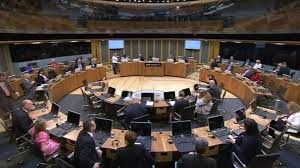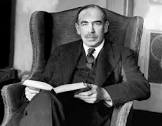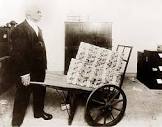- Return to sender - 20th February 2026
- Legal eagle - 19th February 2026
- Round Robin - 19th February 2026

During 23 years with the BBC, and 41 years in journalism (when he was trained to use simple language, avoiding jargon), for our Editor, Welshman Phil Parry, monitoring the latest research has always been fundamental, and now this is highlighted by new facts emerging about John Maynard Keynes.
It is not the job of a good journalist to be part of the mainstream.

The true role is to be a member of the ‘awkward squad’, or as the late Patrick Hannan once put it: “Shouting discouragement from the sidelines”.
I have always found it problematic for a journalist to accept an official honour ‘for services to the media etc.’ (although I do not condemn those who do), because it seems to me you are compromised, and if you expose corruption in the Government you then open yourself to the accusation: “Ah, but how do I trust this? After all you accepted an honour from that Government”.

You have to be prepared to stand apart slightly from the crowd, and accept the abuse this might entail (I know this only too well!).
For example at the time of the opening of the Welsh Assembly (WA) (what is now called the Welsh Parliament/Senedd Cymru (WP/SC)), I remember hearing a lot of: “We’re all in it together”, and thinking: ‘Well I’m NOT!’.

My personal views (I am in favour of devolution as Phil Parry), are completely separate from my views as a journalist, but people appear to confuse the two.
All of this has been thrown into sharp relief for me by new research into John Maynard Keynes.
He was, of course, one of the most brilliant economists of the 20th century.


Keynes detailed his ideas in his magnum opus, The General Theory of Employment, Interest and Money, published in early 1936, and by the late 1930s, leading Western economies had begun adopting his policy recommendations.
Almost all capitalist governments had done so by the end of the two decades following Keynes’s death in 1946.
But it is perhaps little known that he was also a member of the ‘awkward squad’.

During the Great Depression of the 1930s, Keynes spearheaded a revolution in economic thinking, challenging the ideas of neoclassical economics that held free markets would, in the short to medium term, automatically provide full employment, as long as workers were flexible in their wage demands.
But he cannot be fully embraced by the left either, because like a lot of economists, Keynes believed that it was important to have strict policies in place in order to control inflation.

He said, for instance, that there was: “No surer means of overturning the existing basis of society than to debauch the currency”.
In short he stood out from the crowd.
Journalists have a lot to learn from him…
The memories of Phil’s astonishing, decades long award-winning career in journalism (when it has always been important not to be part of the mainstream), as he was gripped by the rare neurological disabling condition Hereditary Spastic Paraplegia (HSP), have been released in the book ‘A Good Story’. Order it now

Tomorrow – how during his long career, for Phil a key factor was having Editorial independence, now there are signs this may be under threat, as political interference grows.









